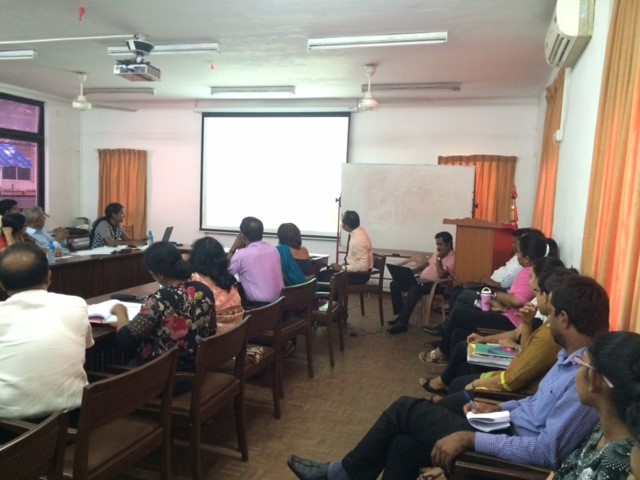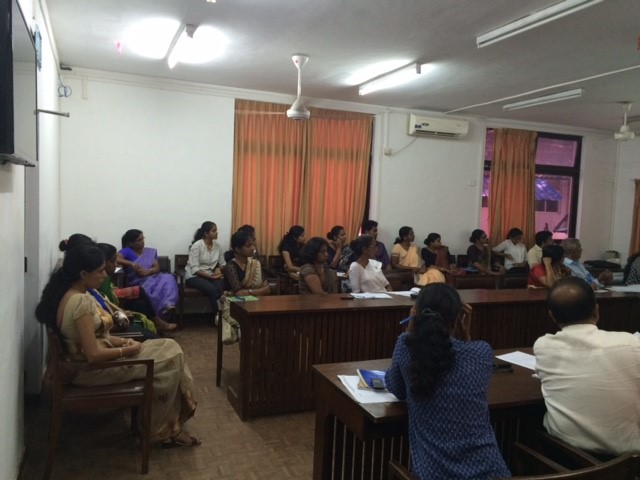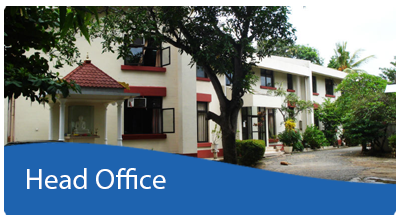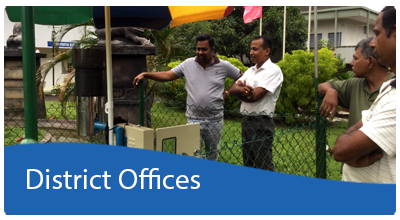NBRO Research and Development (R & D) programme was rejuvenated in 2013 with the General Treasury restoring provision of their annual research grant to NBRO.
This programme was continued successfully in the years of 2014 and 2015. In the year of 2015, various studies were conducted under the broader theme of ‘‘Resilient Built Environment’’.
NBRO received a research grant in 2016 to continue its research and development programme. Research proposals from NBRO scientists for 2016 comprise of many new proposals and several proposals to continue the research work of previous years.
New research studies are comprised;
- Determination of the best mix for Bottom Ash Blocks and field conducting trials/ testing on a model house.
- Development of alternative roofing material to substitute asbestos-cement roofing material and for use in disaster resilient housing.
- Development of alternative and sustainable materials for construction of gravity semi-gravity and cantilever retaining walls.
- Evaluating the hazard situation caused by the Karst subsurface conditions at Vijaya Srigama village, Digana, Kandy.
- Determine the effect anthropogenic pressure and the watershed resilience on stream water ecology and water quality.
- Systematic diagnostic assessment of select chemical disasters in Sri Lnaka.
- Long term Sustainability of Post Disaster Housing Reconstruction Projects.
- Flood Risk Assessment in Rathnapura Municipal Council Area.
- Evaluation of presently applied designed criteria and mitigation measures for Sri Lankan landslides and selection of most suitable design by modelling.
- Applicability of Relative Weights of Existing Landslide Hazard Zonation Methodology for Different Terrain Conditions of Sri Lanka.
- Setting of Standard Rainfall for Early Warning System (EWS) considering past landslide incidences in Sri Lanka with reference to 24hrs working rainfall.
- Contribution of Geological Structural Orientation on Cut Slope Failures along Roads in Mountainous Terrain.
- Finding the cause of land subsidence in limestone terrain of Achchuwlei area, Jaffna.
- Performance Study of Concrete Strengthening Techniques in Sri Lankan Context.
- Behavior and Pattern of Description in Relation with Different Rock Types and its Application for Design of Sub ground Construction.
- Modes of occurrence and geotechnical behavior of laterite in low land area.
- Early warning system for landslides with threshold limits by using remote sensors: A case study of Badulusirigama landslide in Sri Lanka.
- Settlement of Shallow foundation on soils in Sri Lanka.
- Use of soil nailing cost effectively in improvement of slope stability in Sri Lanka.
These proposals were presented to the Research Committee at the meeting held on 3rd March 2016. As per the advice of the Research Committee, initial literature surveys of these studies have commenced.
 |
 |
 |































